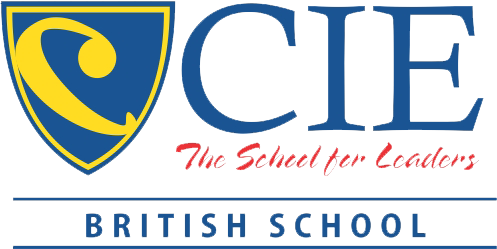Master in Management with special interest in
CIE Master in Management with Special Interest in Strategic Operations (MSO)
This is a masters degree for aspiring business executives, as well as social entrepreneurs with critical operational responsibilities in marketing, customer service, finance, production, service delivery, human resource, supply chain, and technology. It aims to assist the candidate to align their key performance indicators or balance their “scorecards” to the strategic directions of the organisation.
The course leverages on the candidate’s experience in strategic business to help put lessons in the context of global challenges, shifting technology environment, and international standards. These strategic business areas include, but are not limited to, business process improvement, product development, quality management, supply chain, tactical & strategic collaboration, workforce development, project management, and technology deployment.
The Master in Management with Special Interest in School Management (MSM)
This is a masters degree specialising in quality practice in school management and offers the opportunity to focus practically and critically on the macro-operations of a school. It aims to respond to the professional development needs of school administrators recognising the major changes affecting their work in education in a borderless world.
This course puts together relevant theory, applied research, active learning, analysis of values, systems and technologies in the field of educational leadership and management.
The course is designed for incumbent principals, head masters, master teachers, supervisors and other school directors who wish to enrich themselves professionally and move up in the administrative ladder.
The Master in Management with Special Interest in Public Enterprise (MPE)
This is designed within the international social, economic, and administrative contexts of the 21st century.
Using a multi-disciplinary perspective, MPE examines the relevant and essential competencies and issues in public administration and governance, while refocusing on international development, social policy on various critical issues on education, economics, diplomacy, multi-cultural development planning, budgeting and finance, environment and health.
A public administrator who always finds himself at the helm of initiating projects or as implementor of certain mandates, must demonstrate a wide range of management and leadership skills including project management in a more complex political environment.
In a projectised society, the transfer of opportunities and benefits of programmes can only be maximised at an effective, efficient and timely rate if the managers and implementors possess the right competencies to deliver the correct solutions and remedies to critical issues and problems of society, while utilising all resources available including natural resources, and protecting these at the same time.
An enlightened leader is an “integrated person,” he understands integration and comes up with integrated solutions for the needs of his constituencies.
MPE provides the opportunity for candidates to explore a diverse range of new approaches to public service. The corresponding critical competencies required of an administrator to manage concurrent projects and provide leadership in accomplishing their mandates is to not just deliver adequate services to the public, but to deliver excellent services. This can make them become a servant-leader to the people.
We want every public servant to be a hero in his lifetime and become a catalyst for people’s liberation from the poverty of the body, mind and spirit.
In other words, he sees the big picture. This is the big picture: to make this country a truly better place, a place where there is true equity.
Master in Management with special interest in Enterprise Development (MED).
There are many situations or opportunities to be an entrepreneur when you run your own enterprise or when you are entrusted with one by investors or shareholders. It is imperative what would-be entrepreneurs are prepared and that those already leading their respective enterprises are geared up for uncertainties in this Age of Paradox.
The entrepreneur today is operating in a different theater which makes it more important to have an intimate appreciation of the business life cycle. Gone are the archaic beliefs that to get ahead, entrepreneurs and business executives must predict the market behaviour or anticipate the competition.
21st century entrepreneurs and business executives will dominate by defining their own rules of engagement and dictate the terms of the competition through innovation and creation. The battlefield will no longer be determined by the leader who is good at tactical maneuvers BUT by the entrepreneur who sees “beyond the battlefield.”
The post-modern era business leaders is one who can re-create his organisation’s “corporate being.” This is characterised by a master stroke orchestration of a series of “second curves” that seem to follow one another at shorter periods of time because business life cycles in this day and age are shorter and if not shorter would move to directions that proved unthinkable in the past.
Re-invention has taken an entirely new meaning and dimension.
CEOs, COOs, Presidents, Senior Executives, Board of Directors and even the founders of organisations will benefit from attending this programme. The greatest reward that can be plucked from MED is the realisation that as ultimate leaders of organisations and institutions, they do not adopt best practices but define them. They will develop better “business sight” by creating entirely new rules of the marketplace. They will avoid adverse impact of change by leading and driving it.
This is the way of the new entrepreneur.
